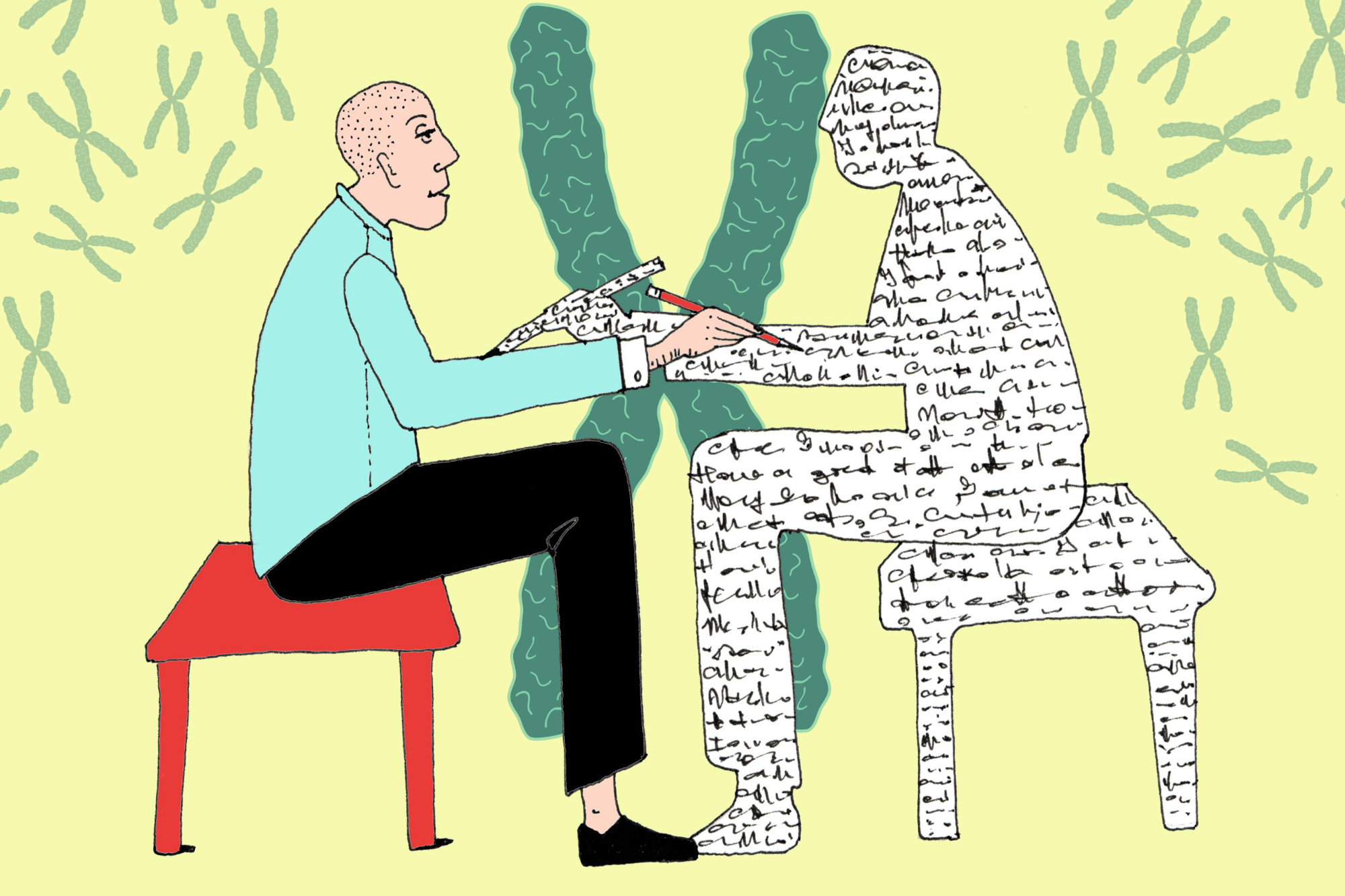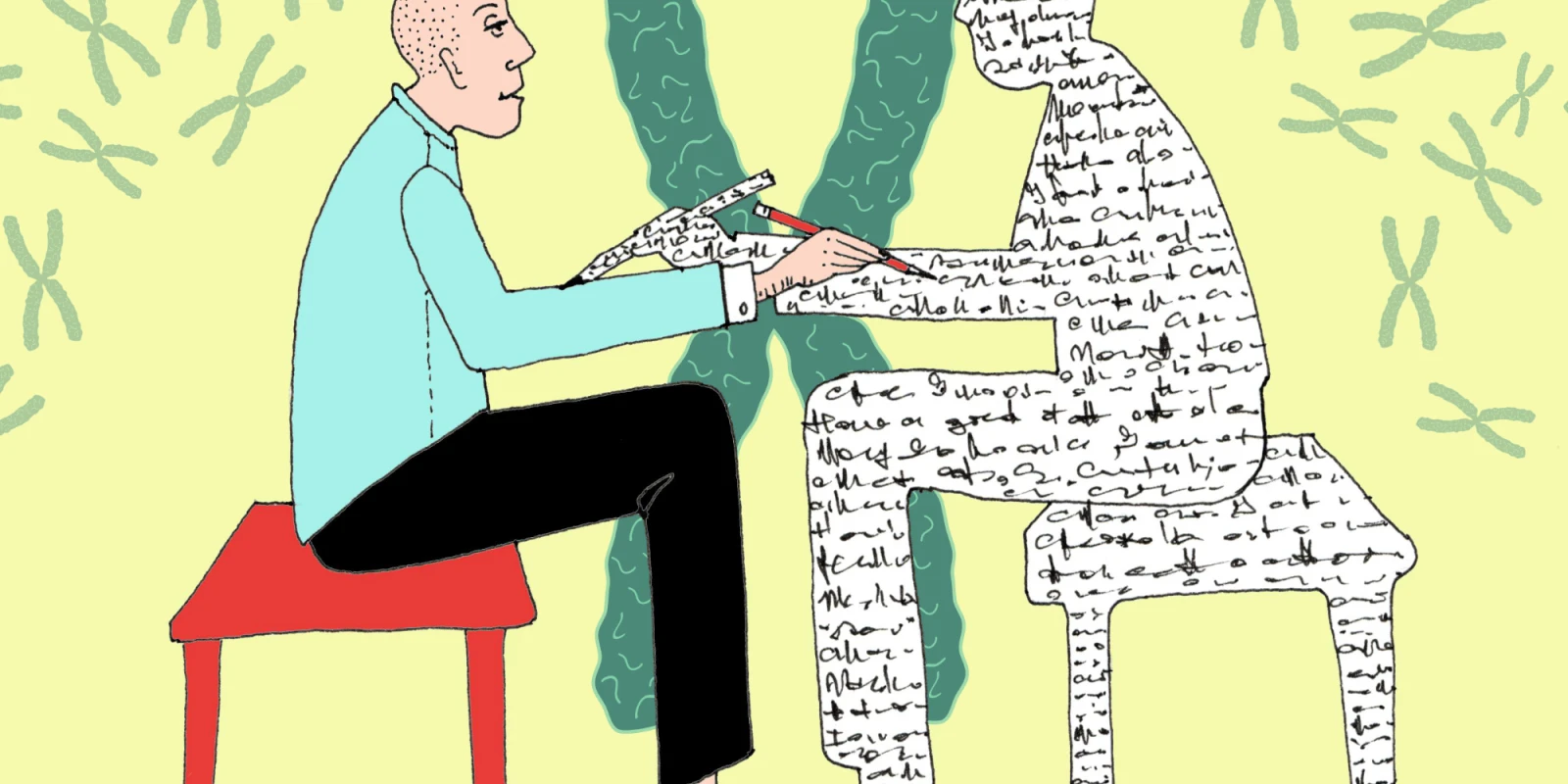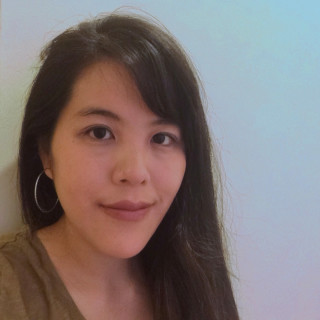
As a high schooler taking 10th grade biology, I hear the word “chiasma” for the very first time. I learn that it is the center of the chromosomal “X,” the place of overlap between paired chromatids, the point of genetic material exchange during meiosis. I’m fascinated and begging to incorporate this scientific phenomenon into my 10th grade English papers. I bring up chiasma when I write about the exchange of information between two characters in conversation. I use the phrase “chiasmic meeting” to describe the moment in a short story where the protagonist and antagonist finally meet. I start to contemplate the seemingly random nature of human lives intersecting, of paths crossed, stories exchanged, experiences shared.
In college, I’m an English major. I spend my years studying poetry and fiction on a beautiful campus. My semesters are steeped in literary analysis, criticism, and theory. I read dense theoretical texts by Bakhtin and Derrida and try to understand philosophers such as Spinoza and Levinas. In my English seminars, we discuss theory and apply them to pieces of fiction. I spend many late nights examining interactions between characters: I’m dissecting dialogue, examining gazes and gestures, and forming my own arguments about what is really taking place underneath the words on the page. I delve into the psyches of fictional characters until I am convinced I know them far better than I know my roommates, my own siblings, and perhaps even myself.
My junior year of college, I study abroad in Beijing. The city has not yet started to close down factories in an effort to improve air quality before the Beijing Olympics and Olympic-related construction projects have yet to cause hundreds of families to be displaced from their homes. There are so many children begging on the streets. There are so many emaciated women with calloused dirt-covered feet sitting on street corners. A rumble starts to build inside of me during my time abroad. I wonder at my lack of tangible skills to give even the most basic nursing care to a sick child living on the streets. I bury myself in my studies and spend my weekends writing creatively about all the brokenness and poverty I see around me. It makes me feel a little better, but the rumble is still there. I start to question what it is I want to do. By the time I return to the United States I’ve decided to forego applying for English Ph.D programs and apply to nursing schools.
In nursing school, I learn anatomy and physiology, pathophysiology, and pharmacology. I memorize exorbitant amounts of facts and algorithms. I am constantly taking or studying for multiple-choice exams. I learn that there are right answers and wrong answers. I learn to discard the same subjectivity that got me my BA in English in exchange for objectivity and hard evidence. I learn to write concisely and communicate efficiently. In my clinical rotations I attempt to convey as much as I can with as few words possible. Outside of the hospital, I write creative pieces for no one else to see; it helps me process tough clinical days and allows me to get rest and fall asleep. After three years, I graduate, pass my board exams and start my career as a nurse practitioner.
At six years a nurse practitioner, I’m working as an infectious diseases NP at a children’s hospital, teaching medical students, working with residents, and doing some academic writing. But, I’ve also started to think more about all the emotional stress that takes place in the hospital: families stressed from their children being sick, parents waiting for answers in the ICU, new residents and nurses secretly crying in the bathroom, and my own sleepless nights worrying about my sick patients on the bone marrow transplant floor.
I learn about “Narrative Medicine” through a PubMed search. (I was researching empathy and creative writing in medicine.) It seems to be about using the study of literature and the act of reflective writing to further empathy amongst clinicians, with the idea that this would improve the clinician-patient encounter and thus better health outcomes. My PubMed research leads me to the work of Dr. Rita Charon. I discover that she coined the term “Narrative Medicine”, that she’s at Columbia University, and that there is a Master’s program there. I decide to apply for . . . fun. After all, I would never leave my home, my hospital, and my community of colleagues and patients.
But, I do end up going. I do make the cross-country move from California to New York. Because narrative medicine feels like The Chiasma. It feels like that crucial intersection point, that interdisciplinary field where health meets humanities, where narrative meets medicine, where science meets art. And, as a former English major, I also believe in the power of literature and art in the way that I know, by heart, the spectrum of activity for antimicrobials.
It’s 2019 now. I’ve finished my degree, left New York and am back to working as an infectious diseases NP at a children’s hospital. My charts are once again filled with notes like, Bartonella neg, Rickettsia neg, IGRA neg or CBC normal, CRP elevated 7.5”. This is a huge part of medicine: the normals and abnormals, the positives and the negatives. But, what happens when I walk into a room to get the history of present illness? What happens after I introduce myself to the family? I sit. I listen. And there are words, gestures, expressions. There are sighs and smiles, frowns and pauses. It’s the story. It’s the narrative. And, it’s what will become the foundation of the rest of our clinical encounter.
I love stories. It’s why I became an English major. But, it’s also why I became a nurse practitioner. Narrative medicine is the beautiful chiasma where my clinical assessment skills of inspection, auscultation, percussion, and palpation join forces with the art of listening, seeing, empathizing, and believing. It’s what makes me not just a clinician but also a human, and it’s what drives me to practice not just from my knowledge base, but also with empathy.
Evelyn Lai is a Pediatric Nurse Practitioner with a B.A. in English Literature and a M.S. in Narrative Medicine. Evelyn has written both academically and creatively and believes strongly in the power of stories. She has no conflicts of interests. Evelyn is a Doximity 2019-2020 Fellow.






